Dancer Tells Stories of China Through Ballet
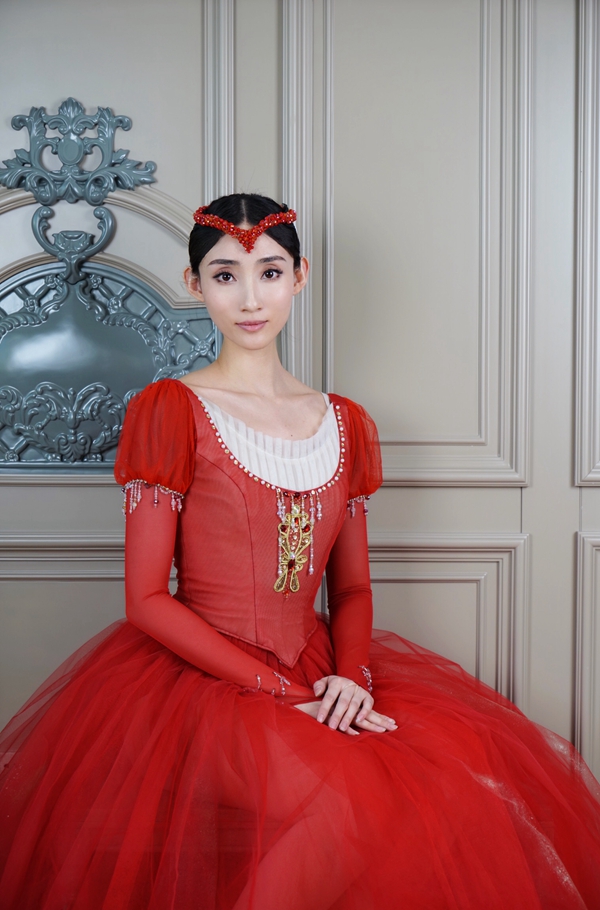
Yu Chuanya, a delegate to the 20th National Congress of the Communist Party of China, is lead ballerina of Liaoning Ballet Troupe, in Shenyang, in Northeast China's Liaoning Province. "As a ballet dancer, I am determined to tell China's stories well, and to present a credible, lovable, and respectable image of China through performing Chinese ballets," she says. Yu has performed many lead roles in original Chinese ballets, which have showcased the elegance of Chinese ballet dancers to the world.
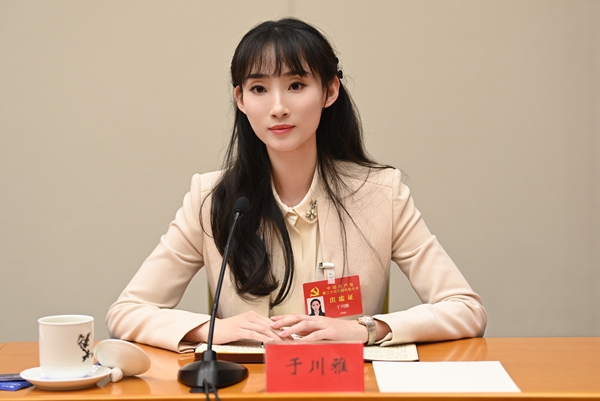
'Most Beautiful Swan'
Yu, a native of Shenyang, began learning ballet at age 4. With a strong interest in ballet, she attended dance classes three times a week. In 1999, then-9-yearold Yu was admitted to the ballet school affiliated with Liaoning Ballet Troupe.
"My physical condition actually was not good. I often felt more pain than the others when we practiced some movements. But I loved ballet, and I never thought of giving up. Some parents will feel distressed when they see their children suffer pain while practicing a dance, and they let their children quit dancing. My mother always supports me, and she encourages me to face challenges and have confidence in myself. My father is also supportive of me," Yu says.
The troupe often invites students from the school to participate in performances when staging a ballet with children's roles. Yu had numerous opportunities to perform on stage, which deepened her love for ballet.
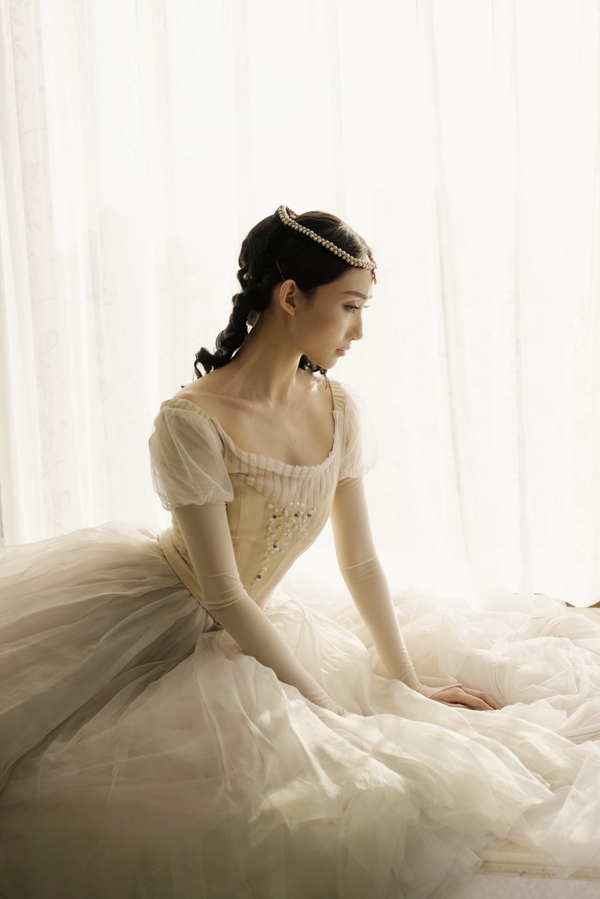
"While watching the performance, the audience feels the dancers' movements are graceful. But, in fact, the movements are powerful and require explosive force. When I was a student, I practiced running to increase my lung capacity, muscular strength and muscular endurance," Yu says.
In 2005, Yu graduated from the ballet school, and she enrolled in the Department of Ballet at Beijing Dance Academy.
"The academy is the top institution for dancers, and its students are elite, from all over the country. As my physical condition was not good, especially compared with girls from southern China, I had low self-esteem at that time. My teacher, Zou Zhirui, encouraged me. She told me I had my own advantages, such as being expressive on stage and having explosiveness and physical endurance, and I should give full play to my advantages." Yu recalls.
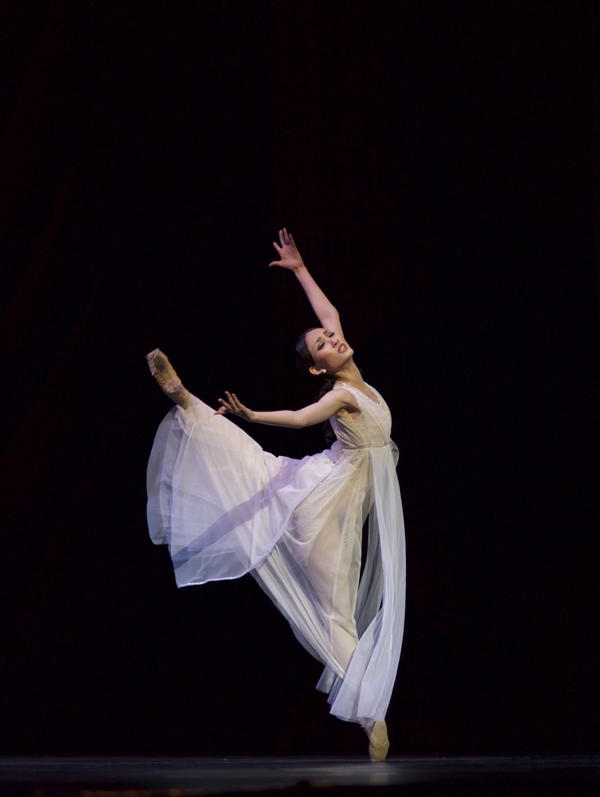
Yu says she feels lucky to have met such a good teacher, who understood her, and who guided her to become a better ballet dancer. Yu put a lot of effort into practicing ballet, more so than most of the other students.
After she graduated from the academy, in 2009, Yu returned to Shenyang, and she joined Liaoning Ballet Troupe.
"I enjoy dancing. When I first began working with the troupe, it seemed that I was dancing all the time, except for eating and sleeping. But I didn't feel tired. I am willing to try different plays, and to experience different roles. I analyze the historical, cultural and religious background, and also the characteristics of the roles, and then perform in my own way," Yu says.
Ballet dancing has become a significant part of Yu's life. She has performed the lead roles in numerous classical and contemporary ballets. She has also been invited to perform in Russia, Canada and South Africa. Vladimir Malakhov, the Russian ballet dancer, referred to Yu as "the most beautiful swan" after Yu performed in the classical ballet, Swan Lake.
Eight Heroines
In 2014, Liaoning Ballet Troupe created a Chinese ballet, Eight Heroines, based on the stories of eight women soldiers, in the Northeast Anti-Japanese United Army, who sacrificed their lives during the fight against Japanese invaders.
Yu performed the lead role, Leng Yun (1915-1938). "It was my first time to play the lead in a ballet featuring stories of China's revolutionaries," Yu says. During practices, and even during performances, she often injured her knees. "It doesn't matter how hard the process is. As long as we present a work the audience likes, it's worth it," Yu says.
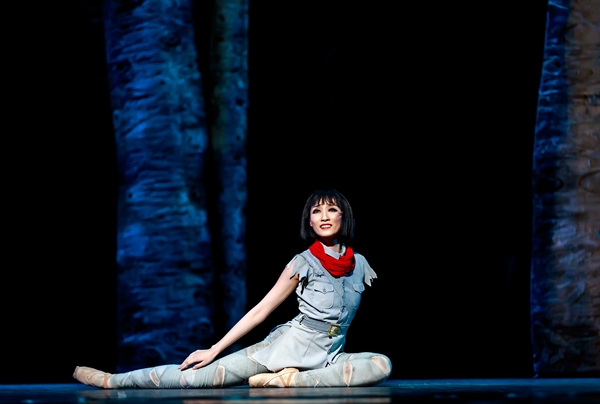
The performance included various non-traditional-ballet elements, such as yangge, a traditional folk dance of the Han ethnic group, and folk dances unique to the Korean ethnic group. "The play, featuring ethnic characteristics, conveys the indomitable spirit of revolutionary martyrs," Yu says.
Yu read plenty of materials, to learn about the historical background of Leng's story, and she did her best to figure out the emotions and psyche of the character. "No matter how difficult the ballet skill is, it can be accomplished with hard work. What matters most is portraying the inner world of the character, and demonstrating the soul of the character," Yu says.
In one scene, the character, Leng, is required to stand still — no movement and no speaking — after learning of her husband's death while fighting Japanese invaders. "What I can do during this period is totally integrate with the character, and convey Leng's pain, struggle and powerlessness with my own feelings," Yu says.
In another scene, the character, Leng, holds her two-month-old daughter. Yu was neither married nor a mother in 2014, when the ballet was rehearsed and staged. So, Yu practiced holding a baby like a mother in front of a mirror, every day, and she worked hard to capture the essence of what it was like to be a mother.
"At that time, a colleague said I performed like a real mother, but I still felt something was missing. Since I gave birth to my daughter, more than two years ago, I have had a deeper understanding of the emotions of Leng, and I have performed the role even better than before," Yu says.
As a classic play of Liaoning Ballet Troupe, Eight Heroines has been staged frequently since 2014. In addition, Eight Heroines has won several national awards. "It is the baptism of my heart every time I perform the play on stage. I have deep affection for this play, and it is like a part of my life," Yu says.
In 2017, when Eight Heroines was staged in Russia, an elderly couple in the audience was moved to tears. "I feel, although the audiences come from different countries, they share the same emotions, and they can relate to each other through dance," Yu says.
Communicator of Culture
Mulan, a ballet created and presented by Liaoning Ballet Troupe, tells the age-old story of Mulan. The story was originally presented in a folk song, known as the Ballad of Mulan, during the Northern Dynasties (386-581). The valiant girl joined the army on behalf of her ailing father, and she battled enemies to defend her country. Mulan fought with high distinction, and she refused the accolades thrust upon her. Ultimately, she retired to her hometown.
Dancers use props, such as bows, arrows, sticks and other weapons, while performing on stage. Such props help the ballet embody richer cultural content and have stronger cultural charm.
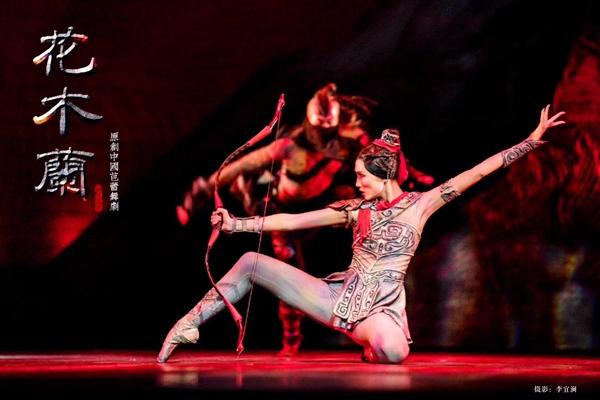
In August 2019, Mulan debuted at the Lincoln Center, in New York, the United States. The perfect fusion of traditional, heroic Chinese stories and the Western classic art form conquered the audience of nearly 2,000 people.
"Many people rose from their seats to applaud, and they exclaimed'Mulan.' I felt the audience was expressing their love for and identification with Chinese culture, and Chinese image, from the bottom of their hearts," Yu recalls.
Yu has performed the lead roles in many original Chinese ballets, including Last Emperor and the Moon Over a Fountain, each of which integrated Chinese elements and characteristics of the times.
Yu has received several domestic and international awards for her outstanding ballet performances. She has always impressed audiences with her excellent ballet dancing. Some people have commented that her performance "is able to integrate the soul of the character with the dance."
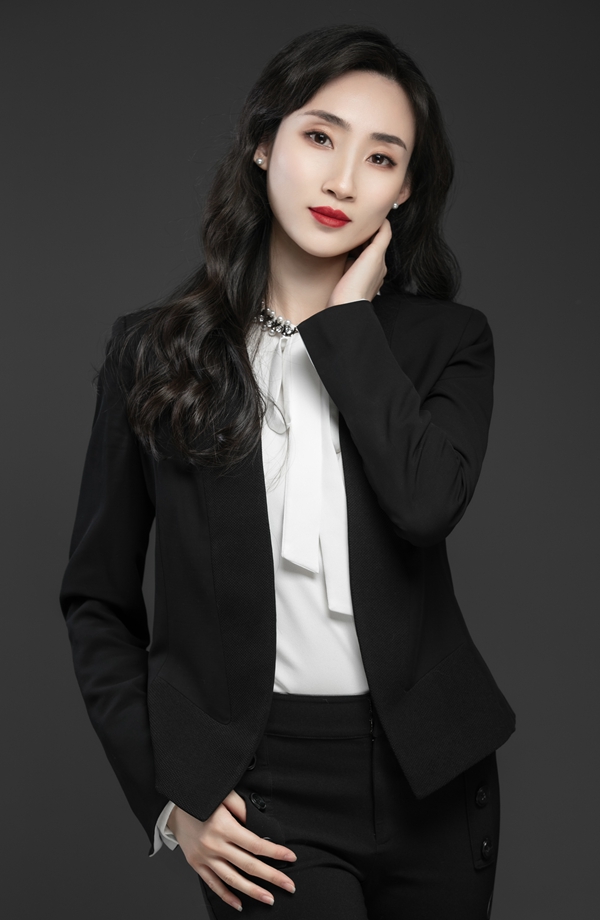
Yu has helped cultivate the troupe's young dancers. When she leads them in rehearsals, Yu always shares her performing techniques, and her understanding of the characters.
Yu has participated in various public-welfare performances, and she has explained ballet to audiences. She has also been invited to give lectures at colleges, universities and institutions to promote the art of ballet dancing.
"Performers are the communicators of culture, and spreading positive energy is our responsibility. I hope our troupe will create more contemporary ballets, and better tell the stories of China on the world stage," Yu says.
Photos Supplied by Liaoning Ballet Troupe and Interviewee
(Women of China English Monthly June 2023 issue)
Please understand that womenofchina.cn,a non-profit, information-communication website, cannot reach every writer before using articles and images. For copyright issues, please contact us by emailing: website@womenofchina.cn. The articles published and opinions expressed on this website represent the opinions of writers and are not necessarily shared by womenofchina.cn.

 京公网安备 11010102004314号
京公网安备 11010102004314号